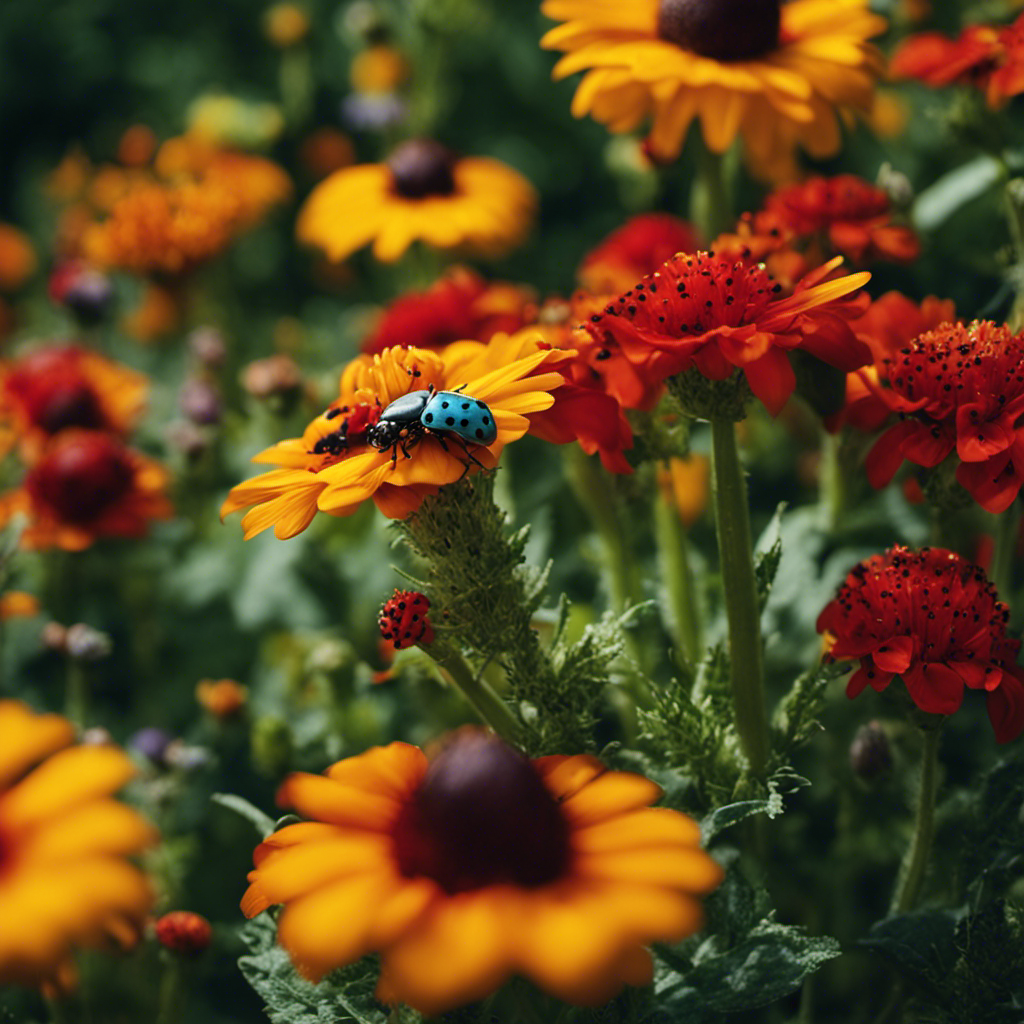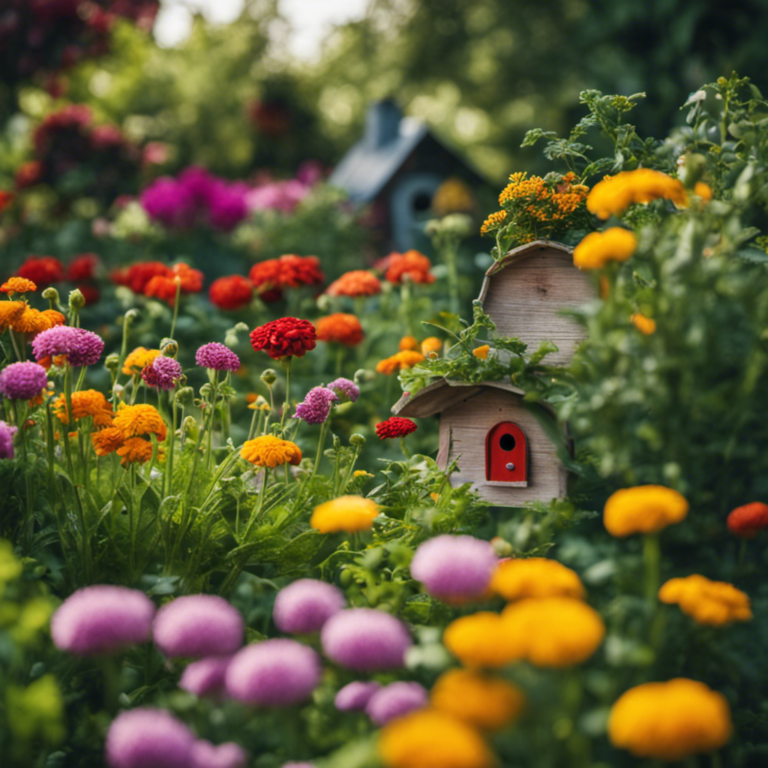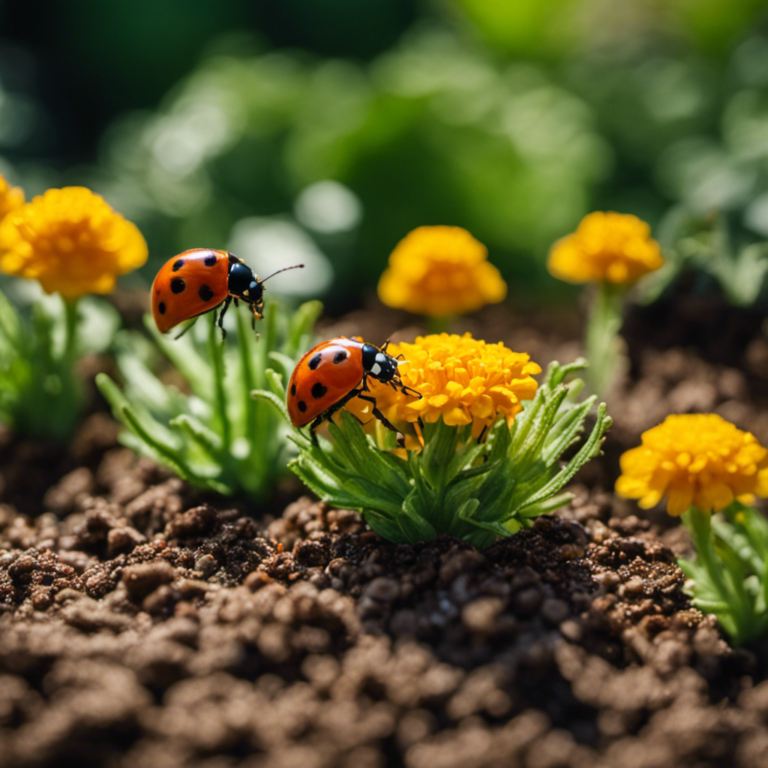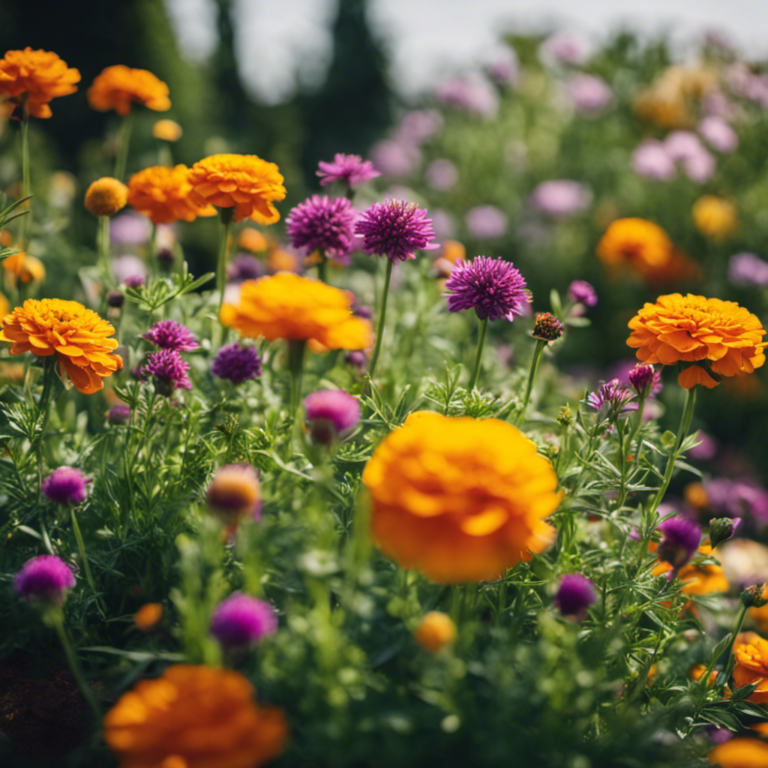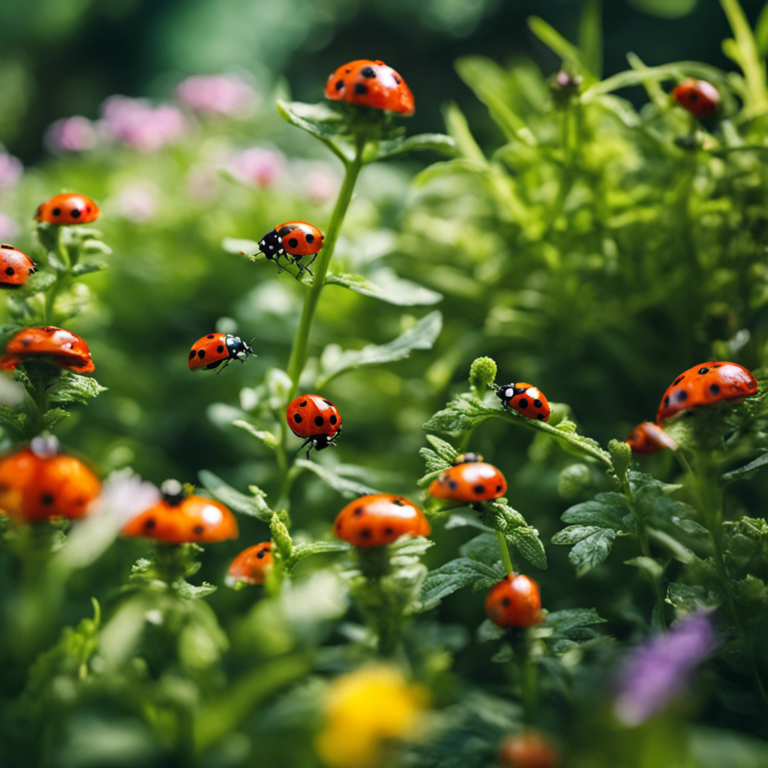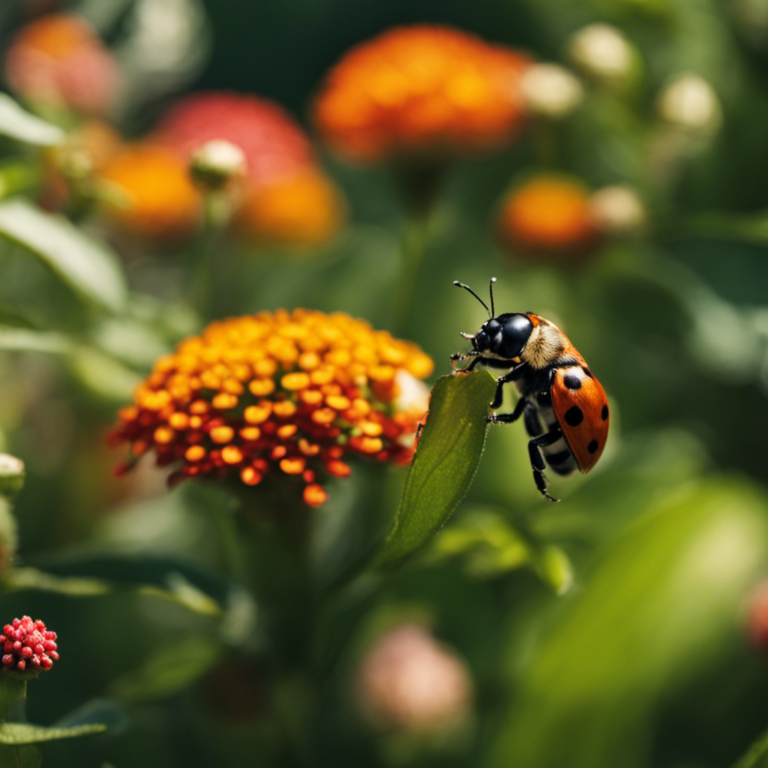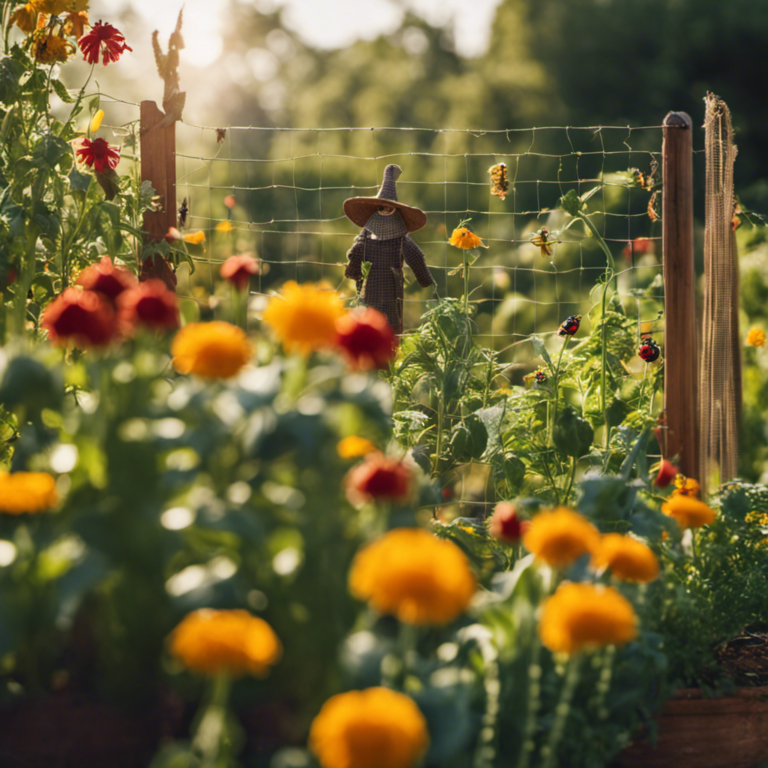Are pests wreaking havoc in your garden? Well, get ready because we’re about to share some game-changing techniques that will transform your pest control methods.
Imagine having natural predators keeping a watchful eye on your plants or strategically planting companion plants that repel pests like a protective shield.
By incorporating homemade sprays and biological controls, you can create a garden that is not only visually stunning but also environmentally friendly.
Say goodbye to pesky pests and say hello to a thriving, organic garden.
Let’s explore these effective techniques together!
Key Takeaways
Organic Techniques: Improve Your Garden’s Pest Control
[MODIFIED TEXT]:
Here are some organic techniques that can greatly enhance your garden’s pest control. Instead of relying on chemical pesticides, you can attract natural predators and practice companion planting to create a balanced ecosystem that effectively repels pests. Homemade pest sprays and biological controls offer eco-friendly alternatives that are safe for the environment.
In addition to these methods, it is equally important to prioritize soil health in order to maintain a thriving garden. By implementing these techniques, you can create an environment where your garden can flourish while minimizing harm to the surrounding ecosystem.
Using these organic techniques is like witnessing a harmonious symphony of nature in action.
Natural Predators
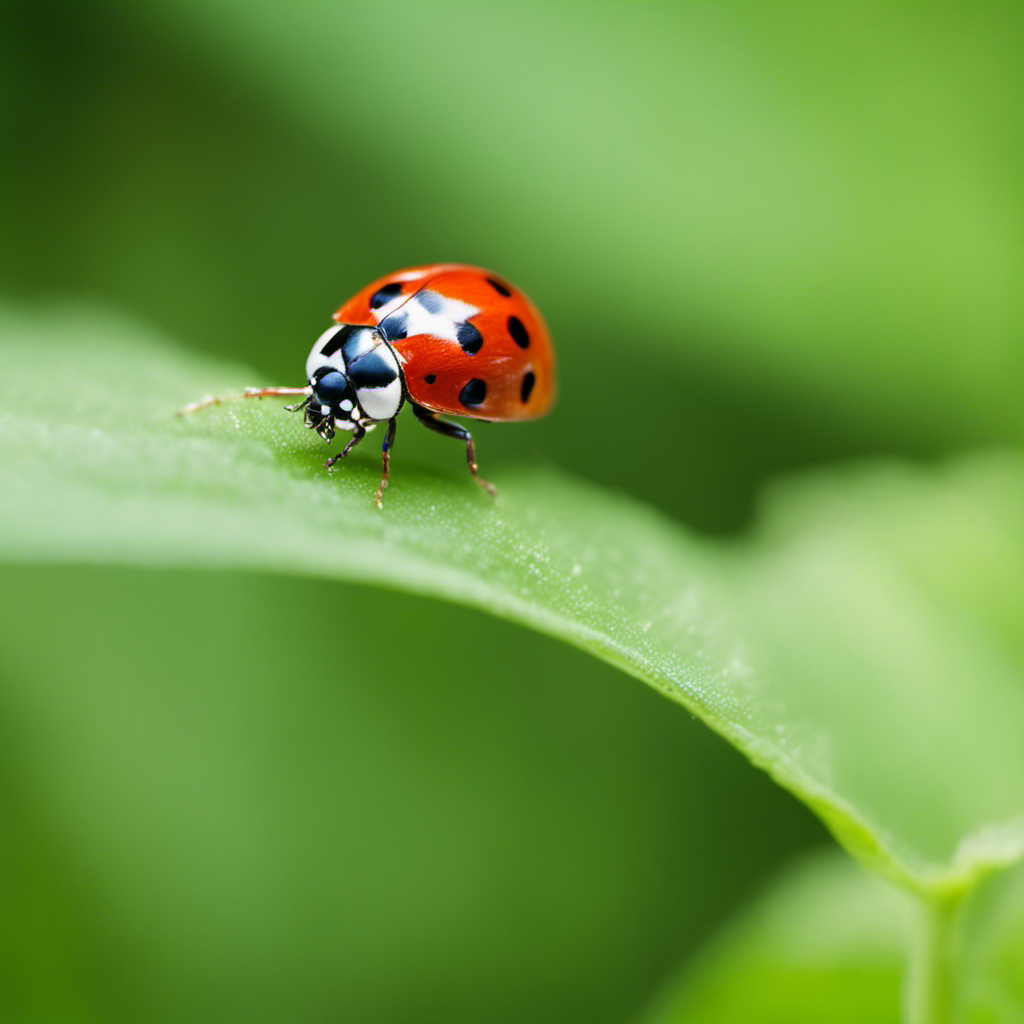
To effectively control pests in your garden, it’s important to utilize natural predators. Integrated pest management is a sustainable approach to pest control that focuses on using biological and ecological methods.
Instead of relying on harmful chemicals, you can create a natural balance in your garden ecosystem by attracting and maintaining populations of beneficial insects and animals.
One effective method is trap cropping, where you plant a sacrificial crop that lures pests away from your main crops. For example, planting marigolds can attract aphids away from your vegetables.
Ladybugs, lacewings, and predatory mites are also great natural predators that feed on common garden pests like aphids, caterpillars, and spider mites.
Companion Planting
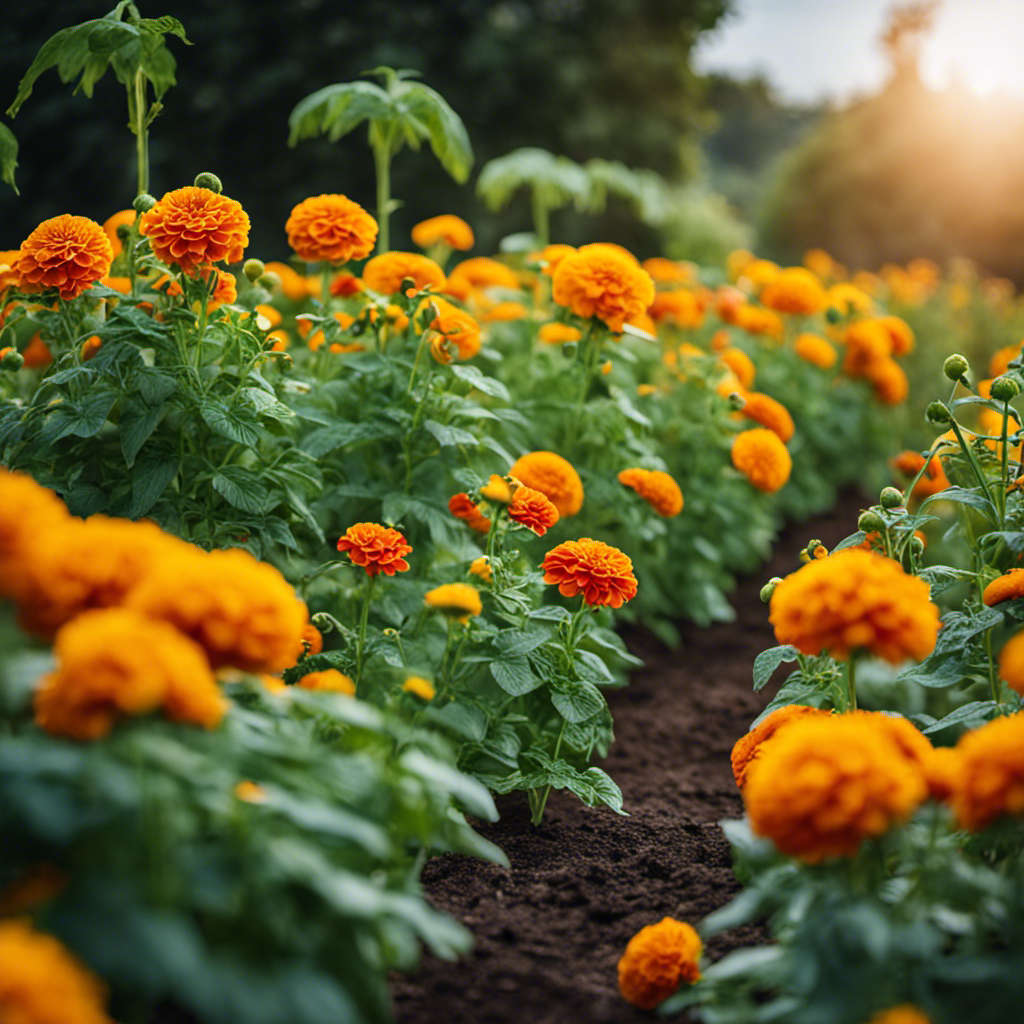
Improving Your Garden with Companion Planting
Enhance your garden’s pest control by using companion planting techniques. Companion planting is a method where certain plants are grown together to benefit each other in various ways. By strategically placing compatible plants in your garden, you can naturally deter pests, improve soil fertility, and increase crop yields.
Two common companion planting techniques are crop rotation and intercropping.
Crop rotation involves changing the location of crops each season to disrupt pest life cycles and reduce soil-borne diseases. This technique also helps balance nutrient levels in the soil, as different plants have varying nutrient requirements. For example, planting nitrogen-fixing legumes like beans or peas after crops that deplete the soil can replenish the nitrogen levels.
Intercropping involves planting different crops together in the same space. This technique maximizes space utilization and creates a diverse environment that reduces pest attacks. For instance, planting marigolds near tomatoes can repel nematodes, while growing basil alongside peppers can deter aphids.
Implementing companion planting techniques not only promotes a healthier and more vibrant garden but also reduces the need for harmful chemicals. By harnessing the power of nature, you can create a sustainable and eco-friendly garden that thrives with minimal intervention.
Homemade Pest Sprays
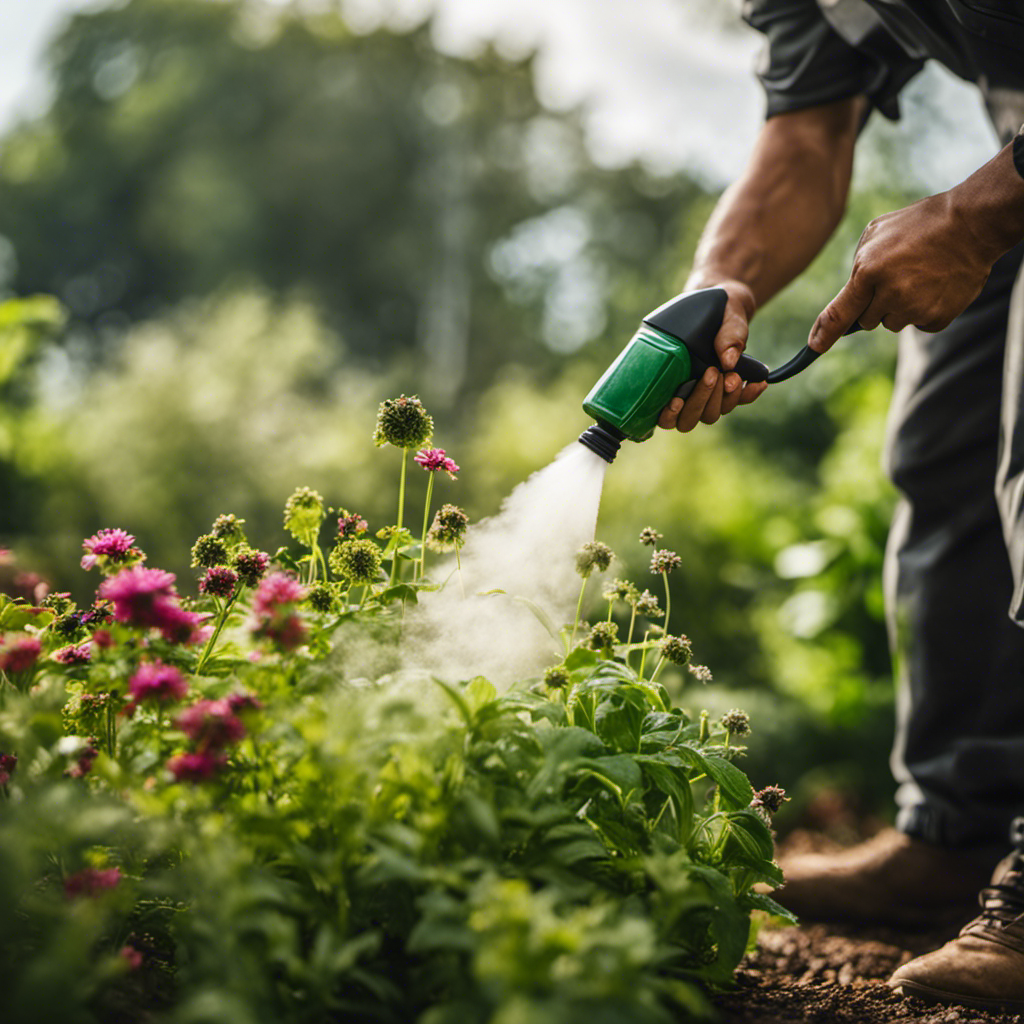
One effective way to improve your garden’s pest control is by making your own pest sprays. These do-it-yourself remedies aren’t only simple to create, but also environmentally friendly.
One popular ingredient for homemade pest sprays is essential oils. Essential oils, like peppermint, lavender, and neem oil, have natural insect-repelling properties. You can mix a few drops of essential oil with water or a carrier oil, such as vegetable oil, to create a spray that can deter pests like aphids, ants, and mosquitoes.
To use the spray, simply shake the bottle well and spray it directly onto plants or in areas where pests are present. Homemade pest sprays using essential oils are a safe and effective way to keep your garden pest-free without the use of harmful chemicals.
Biological Controls
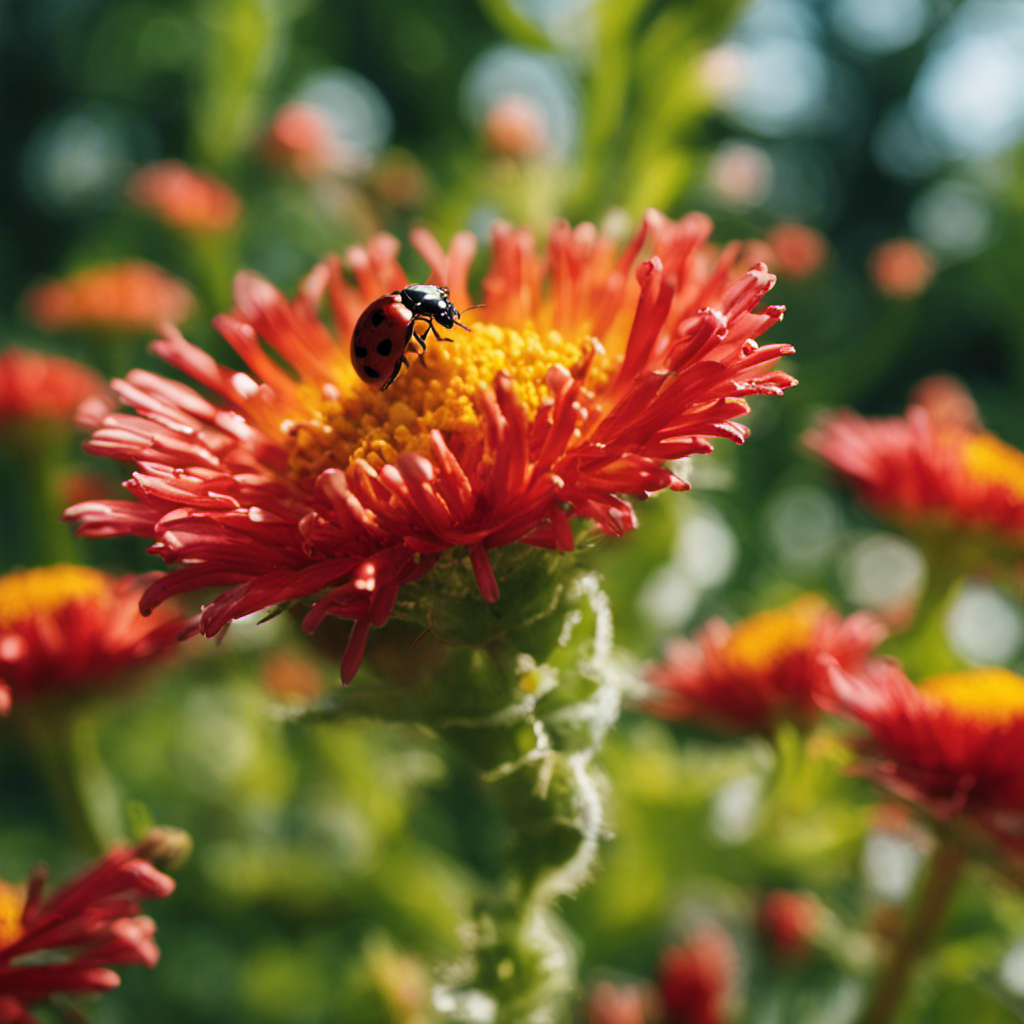
Utilize a range of biological controls to effectively manage pests in your garden. Incorporating beneficial insects into your garden is an environmentally friendly and sustainable way to control pests. These insects, such as ladybugs, lacewings, and praying mantises, feed on harmful pests like aphids, mealybugs, and caterpillars. Introduce them to your garden to create a natural balance and reduce the need for chemical pesticides.
Another effective method for pest control is integrated pest management (IPM). This approach combines various techniques, including biological controls, cultural practices, and monitoring, to manage pests. By implementing IPM, you can identify and address pest issues early on, reducing the risk of significant damage to your plants.
Embracing biological controls and adopting an integrated pest management approach will help you maintain a healthy and thriving garden while protecting the environment.
Soil Health
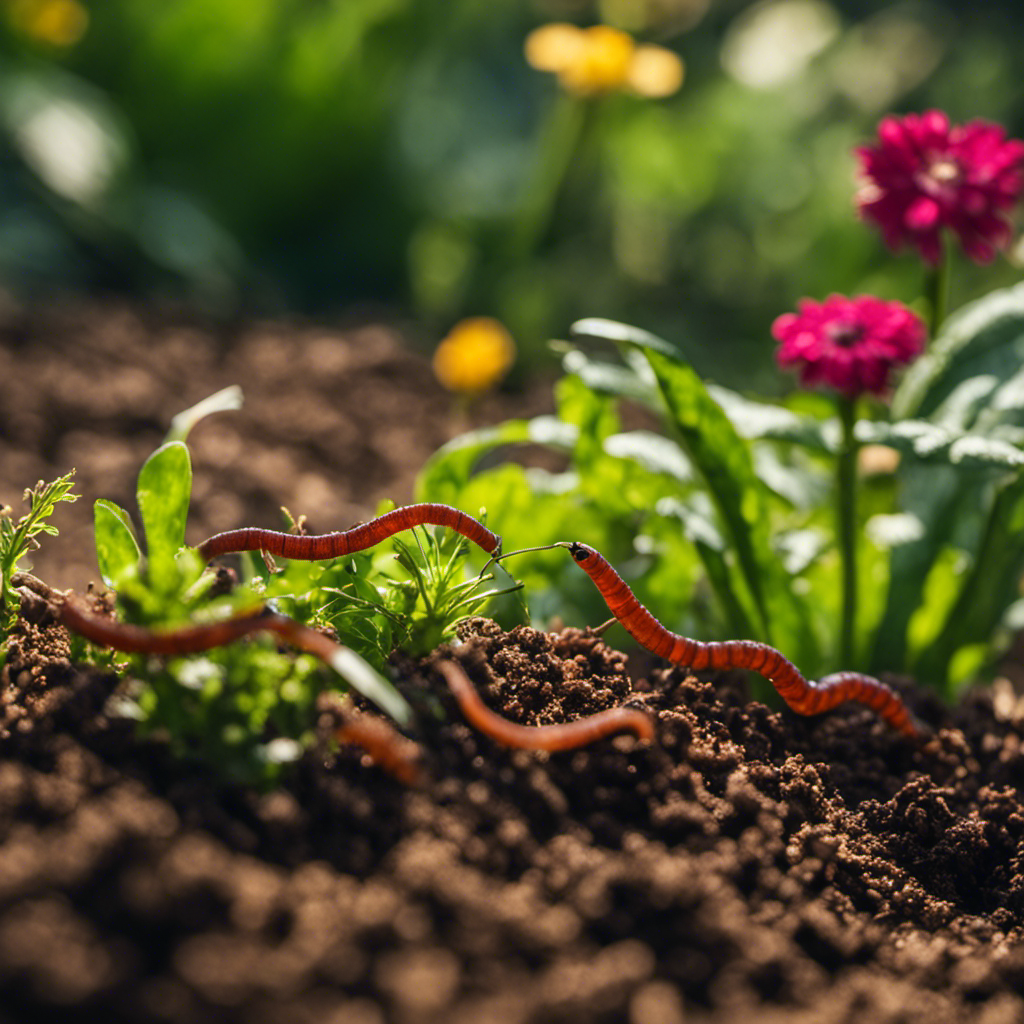
Maintaining the health of your garden’s soil is essential for the growth of strong and resilient plants. One effective way to achieve this is by incorporating compost into your soil. Compost is a nutrient-rich organic matter that improves the structure of the soil, helps retain water, and provides essential nutrients for plant growth. It also promotes the activity of beneficial microbes, further enhancing soil health.
Using organic fertilizers is also crucial in maintaining soil health. Unlike synthetic fertilizers that can harm the environment, organic fertilizers are derived from natural sources and release nutrients slowly, ensuring long-term soil health. They not only improve soil structure but also increase the availability of nutrients to plants.
By prioritizing soil health through the use of compost and organic fertilizers, you can create a thriving garden that benefits both you and the environment. Compost benefits include improving soil structure, enhancing water retention, providing essential nutrients, and promoting beneficial microbial activity. Organic fertilizers, on the other hand, are derived from natural sources, release nutrients slowly, and increase nutrient availability, all while promoting soil health and being eco-friendly.
Conclusion
So there you have it – organic techniques that can transform your garden’s pest control!
By attracting natural predators and practicing companion planting, you can create a balanced ecosystem that effectively keeps pests away.
Homemade pest sprays and biological controls provide eco-friendly alternatives to chemical pesticides.
Additionally, prioritizing soil health is crucial for maintaining a thriving garden.
By implementing these methods, your garden will flourish while minimizing harm to the environment.
It’s like witnessing a beautiful symphony of nature in action!
